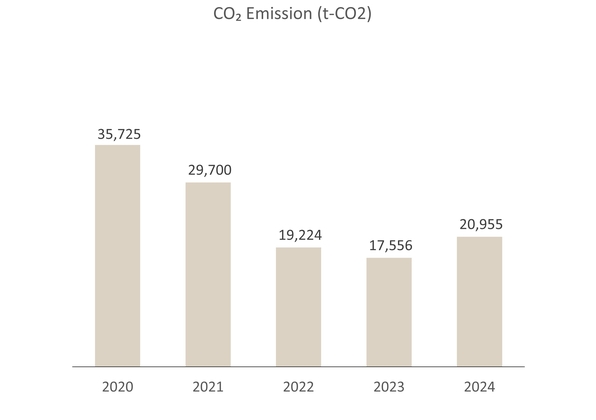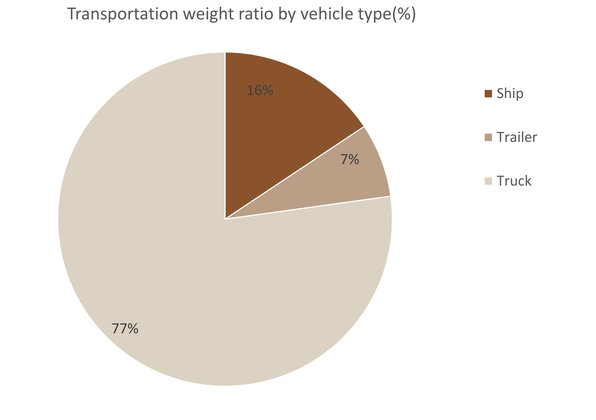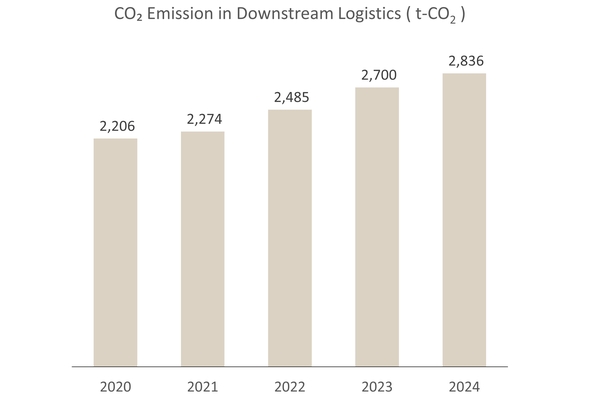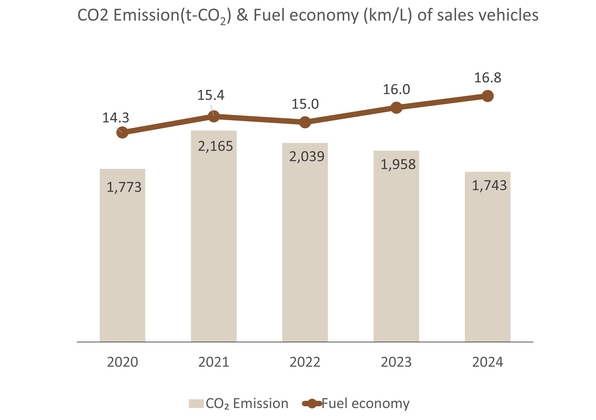Taiho Pharmaceutical is continually implementing a variety of energy-saving measures, including upgrading to high-efficiency air conditioners and freezers, adopting LED lights, and switching to alternative fuels. We pursue energy-saving by addressing both infrastructure and workplace practices. We are also promoting further decarbonization by procuring CO2-free electricity and green power certificates.
Reducing Greenhouse Gases
Taiho Pharmaceutical is implementing a variety of initiatives to reduce CO2 emissions. These include introducing energy-saving equipment to replace air conditioners, freezers, and various other equipment, which are the main sources of our CO2 emissions, and by implementing initiatives that lead to energy conservation in our business. To achieve the Otsuka group's environmental target of reducing CO2 emissions by 50% by 2028 compared to 2017, we will continue to implement further measures to reduce greenhouse gas emissions in cooperation with other Otsuka group companies.
Procurement of CO2-Free Electricity
Taiho Pharmaceutical began using CO2-free electricity for its plants and laboratories at its Tokushima and Kitajima sites in July 2019, and has since expanded this to other sites. Currently, all business sites use CO2-free electricity (including the use of non-fossil fuel certificates, etc.). In addition, since 2020, green power certificates have been applied to electricity used by office divisions, offsetting all CO2 from purchased electricity.
-
-
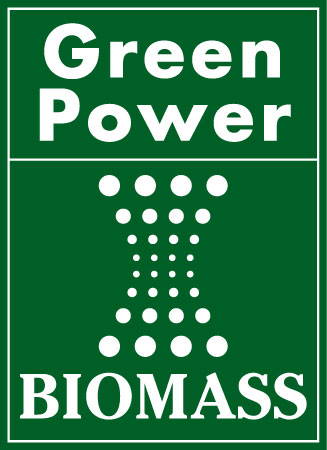
- Green power certificate
-
Initiatives in the Value Chain
Initiatives to reduce impact in logistics
Taiho Pharmaceutical is working with logistics companies to implement a modal shift in transportation methods from road vehicles to ships and railways, which place less burden on the environment. Since fiscal 2010, the Okayama Site has been certified as an eco-shipping facility that contributes to environmental measures through a modal shift.
-
-
-
-
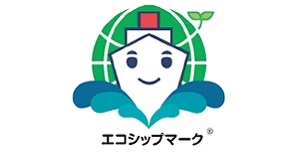
- eco-ship mark
-
CO2 emissions in downstream logistics
Introduction of eco-friendly vehicles
Since fiscal 2005, Taiho Pharmaceutical has been introducing more hybrid vehicles to its sales vehicle fleet. With the increase in hybrid-powered vehicles, the CO2 emissions of the sales fleet have been reduced and fuel efficiency has been improved. Even in models and regions where hybrid vehicles cannot be selected, we are introducing fuel-efficient, low-emission vehicles. We will continue to actively promote the introduction of fuel-efficient, low-emission vehicles to our vehicle fleet. We are also working to reduce the use of vehicles by promoting on-line interviews, etc.
Number and percentage of hybrid vehicles in sales vehicle fleet
| 2020 | 2021 | 2023 | 2023 | 2024 | |
| Number of hybrid vehicles (units) | 328 | 321 | 357 | 440 | 422 |
| Total number of vehicles (units) | 502 | 493 | 489 | 493 | 460 |
| Percent of vehicles that are hybrid (%) | 65 | 65 | 73 | 89 | 92 |
Initiatives Addressing Scope 3 Emissions
To help realize a carbon-neutral society, we need to reduce CO2 emissions not only in-house, but also across the entire value chain. For this reason, in 2015, Taiho Pharmaceutical began calculating emissions for the entire value chain based on the Corporate Value Chain (Scope 3) Accounting and Reporting Standard. We are working to reduce emissions throughout the value chain by taking the most effective steps first, such as reducing containers and packaging and reducing business trips by using more online meetings.
-
-
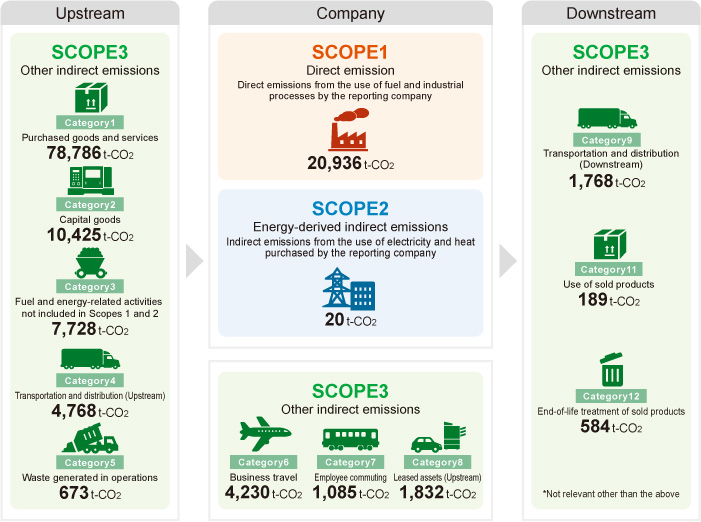
- CO2 emissions in the Corporate Value Chain (Scope 1,2,3)
-
Glossary
Corporate Value Chain (Scope 3) Accounting and Reporting Standard
The Corporate Value Chain (Scope 3) Accounting and Reporting Standard is a GHG emissions accounting standard addressing the entire supply chain of an organization and was issued by the World Resources Institute (WRI) in November 2011.
| Classification | Emissions subject to accounting (examples) | |
| Scope 1 | Direct emissions from the use of fuel in industrial processes and the leakage of freon gases by the reporting company | |
| Scope 2 | Indirect emissions from the use of electricity, heat and steams purchased by the reporting company | |
| Scope 3 | Indirect emissions other than Scope 1 and 2 related to the reporting company's business activities classified as categories 1 to 15 | |
Independent Practitioner's Limited Assurance Report
To improve the transparency and reliability of environmental information, the Otsuka group obtains third-party assurance of the figures for its Scope 1 and Scope 2 GHG emissions, energy consumption, crude oil conversion, and Scope 3, Category 1 emissions. Taiho Pharmaceutical is included in the scope of assurance, and the reliability of the data will be further enhanced.
Engagement in International Initiatives
Joining to RE100
In April 2022, the Otsuka group joined RE100, a global initiative supporting organizations committed to using 100% renewable energy in their business activities. The group is actively working to reduce CO2 emissions based on its 2050 Environmental Vision, "Net-Zero," which aims to eliminate the total environmental impacts across its business activities in order to support the transition to a decarbonized society.
-
-

- RE100, Climate Group, CDP
-
Science Based Targets initiative (SBTi) verification
Taiho Pharmaceutical obtained SBTi verification in October 2019 for its greenhouse-gas reduction targets.
SBTi is an international joint initiative by the international NGO CDP, the United Nations Global Compact (UNGC), the World Resources Institute (WRI), and the Worldwide Fund for Nature (WWF). It verifies that corporate CO2 emissions reduction targets are consistent with scientific evidence-based reduction scenarios for staying under a global average temperature increase of less than 2 °C as set out in the Paris Agreement.
-
-
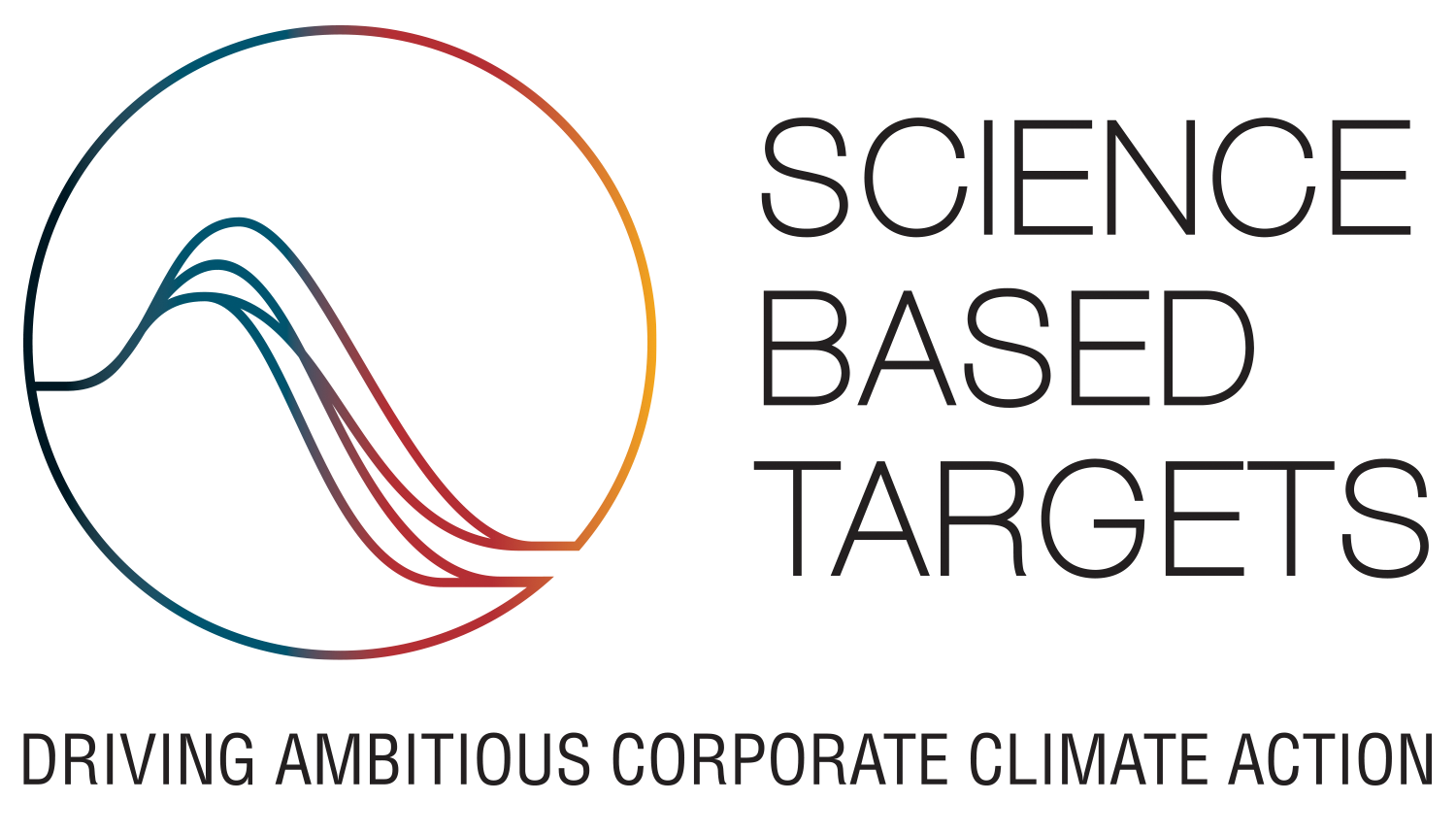
- SBT initiative
-


